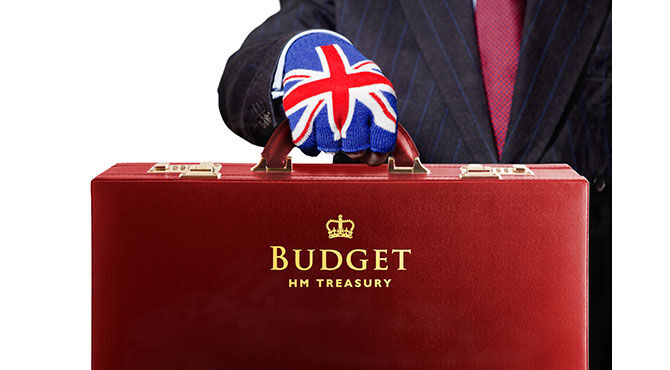Hammond hails end of UK austerity
Chancellor of the Exchequer Philip Hammond predicted "resilient" growth in the UK economy in the coming years as he presented his final Budget before next March's Brexit.

 30 October 2018
30 October 2018Possible Brexit dividend for the UK
Mr Hammond said that Britain was in a "pivotal moment" in the negotiations with Brussels and said that there could be a "dividend" from a deal that would boost the economy further.New tax for tech giants
Among the measures outlined by the chancellor was a plan to introduce a UK Digital Services Tax on the revenues of tech giants in April 2020. Mr Hammond stressed this would not be an online sales tax on goods bought online and would only be paid by profitable firms that have at least £500 million a year in global revenues. The new tax, which is to be subject to a consultation first before it comes into effect, is expected to raise more than £400 million during its first year, Mr Hammond said. There will also be a new tax on the manufacture and import of plastic packaging containing less than 30 per cent recycled plastic.UK commitment to new investment in science, infrastructure and business investment
He also committed to £1.6 billion of new investment in science to support the government's Industrial Strategy plus a £150 million for fellowships to attract the brightest talent from overseas. The National Productivity Investment Fund is to be expanded to over £38 billion by 2023-24, meaning that, over the next five years, total public investment will grow by 30 per cent to its highest sustained level in 40 years, including spending on roads, railways, research and digital infrastructure.Visit our Enterprise section for related news
Mr Hammond also announced a variety of measures to stimulate business investment, including an increase in the Annual Investment Allowance from £200,000 to £1 million for two years; targeted relief for the cost of acquiring IP-rich businesses; and a permanent tax relief for new non-residential structures and buildings. There will also be an extension to the Start-Up Loans funding scheme to 2021, expected to help 10,000 entrepreneurs. Meanwhile, the apprenticeship levy levied on smaller firms, the level of which has been much criticised by business groups, is to be reduced from 10 per cent to five. Business rate bills are to be cut by one-third for the next two years for all retailers in England with a rateable value of up to £51,000 which, the chancellor said, would deliver an annual saving of up to £8,000 for up to 90 per cent of all independent shops, pubs, restaurants and cafes.
UK schools should benefit from end to austerity
Mr Hammond also announced a £400 million in-year handout to schools - a one-off, capital payment direct to schools worth an average of £10,000 per primary schools and £50,000 per secondary. There will also be an additional £420 million for local highway authorities to repair potholes and bridges, and for other minor works this financial year.Read the latest UK budget document on the UK Gov website.
Additionally, an extra £1 billion is going to the Ministry of Defence; £160 million to fund counter-terrorism policing; and £650 million for English councils facing rising care bills. Other measures included an increase to the Transforming Cities Fund to £2.4 billion, with an additional £90 million to trial new models of smart transport; funding for ten University Enterprise Zones; £115 million for Digital Catapults in the North East, Northern Ireland, and the South East; £70 million to develop the Defence and National Rehabilitation Centre near Loughborough; £37 million of additional development funding for Northern Powerhouse Rail; and £10 million for a new pilot in Manchester to support the self-employed to acquire new skills.Relocate’s new Global Mobility Toolkit provides free information, practical advice and support for HR, global mobility managers and global teams operating overseas.
 Access hundreds of global services and suppliers in our Online Directory
Access hundreds of global services and suppliers in our Online Directory Subscribe to Relocate Extra, our monthly newsletter, to get all of the international assignments and global mobility news.
Subscribe to Relocate Extra, our monthly newsletter, to get all of the international assignments and global mobility news.©2026 Re:locate magazine, published by Profile Locations, Spray Hill, Hastings Road, Lamberhurst, Kent TN3 8JB. All rights reserved. This publication (or any part thereof) may not be reproduced in any form without the prior written permission of Profile Locations. Profile Locations accepts no liability for the accuracy of the contents or any opinions expressed herein.






























